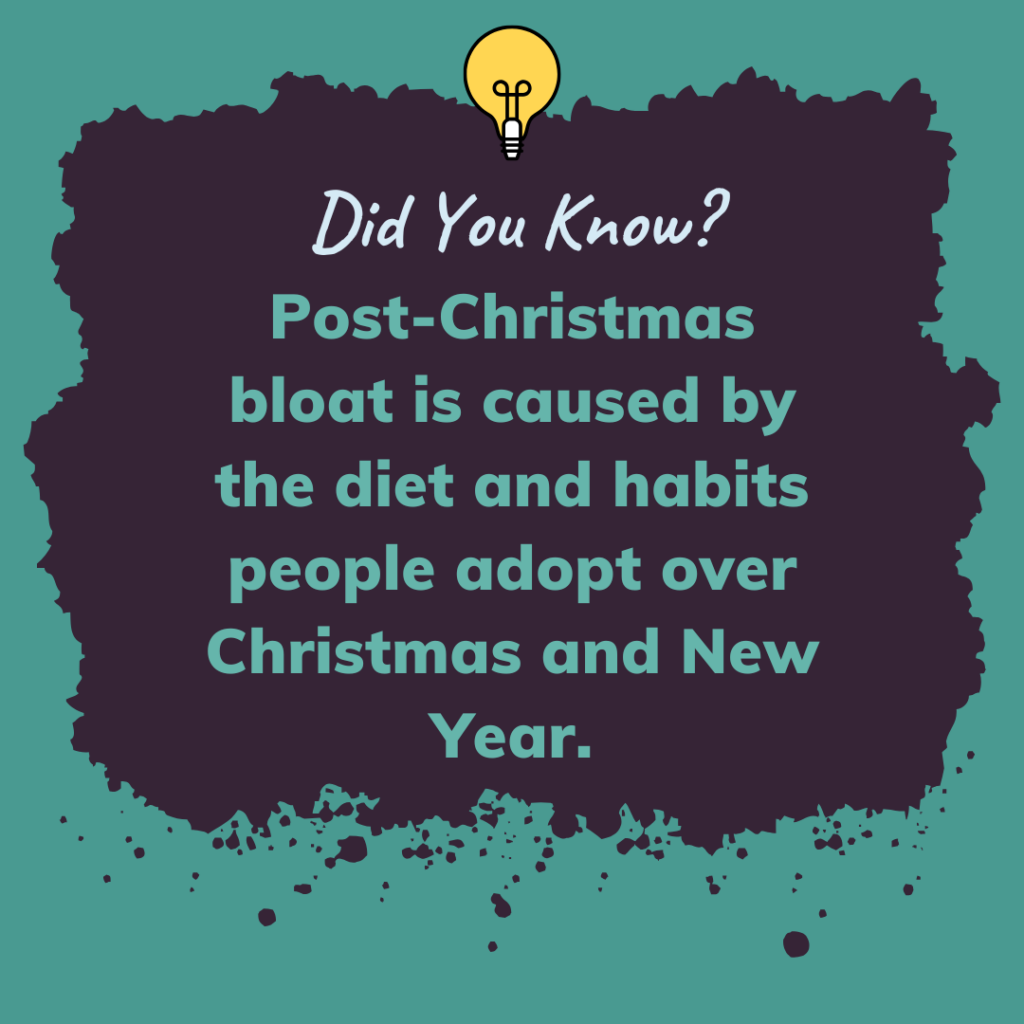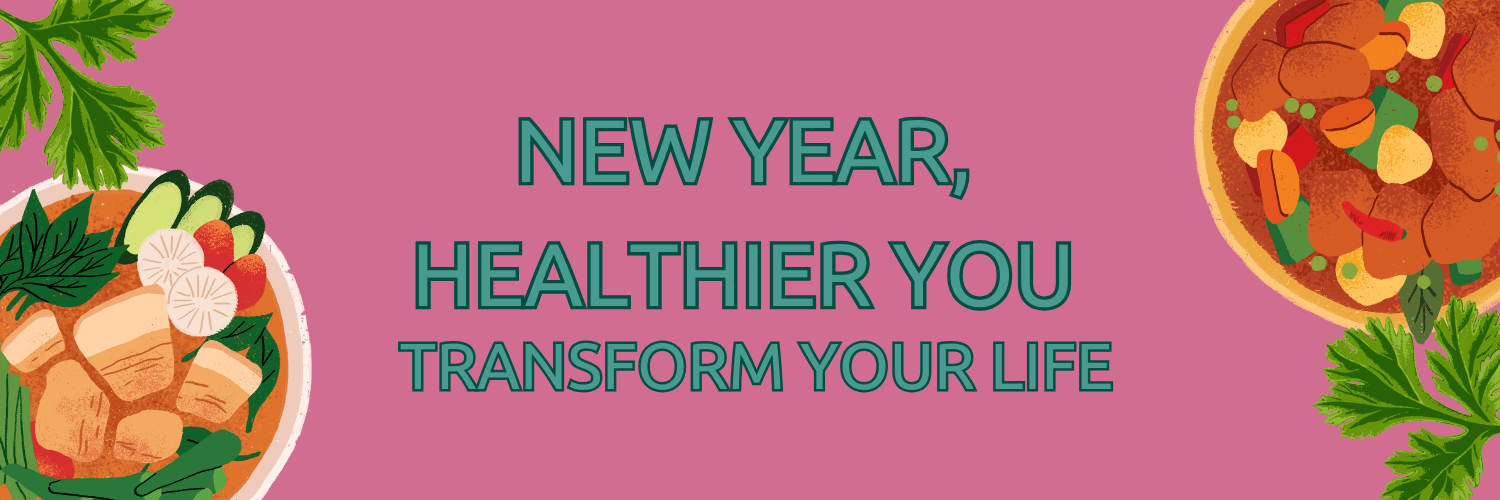Feeling bloated despite the festive season being over? It’s no surprise. Christmas and New Year involve lots of sweet treats, stodgy meals, and a copious amount of alcohol. Little wonder, then, when the festive period comes to an end, we feel sluggish, tired, and bloated. It can take some time for our stomachs to get back to normal.
But that’s not the only reason for post-festive bloat. If you’re feeling sluggish, achy, and bloated, it might indicate an underlying food sensitivity. Learn more below.
What is Post-Festive Bloat?
Post-festive bloat is a term that describes the lingering bloating and GI discomfort after the festive period. Usually, this is caused by the diet and habits people adopt over Christmas and New Year. That could be drinking excess alcohol, not getting enough sleep, and eating too much sugar and fat.
These lifestyle changes alter our gut microbiome – the bacteria and other microorganisms living in our gut. When our gut microbiome changes, it can affect everything from our mood to bloating. It can leave you feeling tired, sluggish, and uncomfortable, making it harder to get back into your routine. Addressing these changes can help restore balance and ease symptoms.
Causes of Post-Festive Bloat
We often make New Year’s resolutions to counteract the damage we cause during the holiday season. We know we’ve overdone it. Some common causes of post-festive bloat include:
- Overindulgence in rich foods filled with fat, sugar, and salt can slow digestion and cause water retention.
- Excess alcohol consumption damages our gut bacteria and irritates the lining of the digestive system. It can leave us feeling uncomfortable for weeks.
- Consuming lots of low fibre is common during the festive period when we eat minimal fruits, vegetables, and whole grains. This leads to constipation and gut microbiome changes.
- Stress and sleep disruption affect gut health and digestion. It can prevent us from recovering quickly after a few weeks of poor diet.
Combined, these factors can push our bodies into an inflammatory state. Some people may notice that an existing food sensitivity begins to worsen or that they develop one for the first time. A food sensitivity is the body reacting to a particular foodstuff. Symptoms include bloating, headache, muscle aches, and even skin rashes. Food sensitivities often get worse due to changes in the gut microbiome, chronic inflammation, leaky gut syndrome, or just a general lack of sleep.

If your post-festive bloat continues long into January, it’s crucial to consider if a food sensitivity is the culprit.
Post-Festive Bloat: Resetting for the New Year
Wondering how to counteract your bloating? It’s not as hard as it sounds. With some healthy practices, you can reset your GI tract and get back to a comfortable state. Follow these tips:
Take a Sensitivity Test
Food sensitivities are notoriously hard to diagnose. There are hundreds of potential triggers in your diet. Everything from asparagus to mulberries could be behind your symptoms. An elimination diet is one possible solution. It involves removing each potential culprit from your diet and reintroducing them one by one to see if your symptoms return.
To narrow down the list of culprits, consider a sensitivity test. The Premium Sensitivity Test from Test My Allergy is the gold standard for sensitivity testing. It analyses 970 items to determine the percentage likelihood that each item is the trigger. It helps guide your elimination diet.
Stay Hydrated
Drinking lots of water is the best way to flush the toxins out of your body. That doesn’t just mean plain glasses of water. Adding a pinch of salt and a squeeze of lemon can help restore any lost electrolytes. You might also consider herbal teas. Peppermint tea, in particular, is proven to resolve stomach discomfort, including bloating.
Eat Gut-Nourishing Foods
Your gut has taken a beating. It’s time to restore its function with a supportive diet. High-fibre foods, such as fruits, vegetables, and whole grains, can foster a healthy bacterial community, reducing the symptoms of post-festive bloat.
Anti-inflammatory foods should form the backbone of your diet. Add turmeric and ginger into your cooking, eat fatty fish and chia seeds, and drink green tea to relieve any acute inflammation from the festive period.
Other helpful foods include leafy greens (e.g., spinach, kale, and Swiss chard), citrus fruits (e.g., lemon, orange, and grapefruit), and hydrating food (e.g., cucumber and watermelon). These foods reduce water retention, enhance liver function, and leave you feeling refreshed. They’re also rich in antioxidants that combat the damage from sugar, alcohol, and processed foods – repairing a leaky gut, if present.
Limit Processed Foods
Give your body a break from processed foods and dense, big meals. No more baked goods, sugary snacks, or fat-laden foods. You can use natural sweeteners like honey instead of refined sugar. Opt for healthy foods like lean meats, fruits, vegetables, and whole grains.
Get Enough Sleep
Good sleep is key to beating post-festive bloat. When you don’t sleep well, your gut can’t recover, and bloating might stick around. Aim for 7-9 hours of rest each night. Try going to bed at the same time, avoid late-night snacks or drinks, and unwind with a calming routine. A good night’s sleep gives your body the reset it needs to feel better and get back on track.





